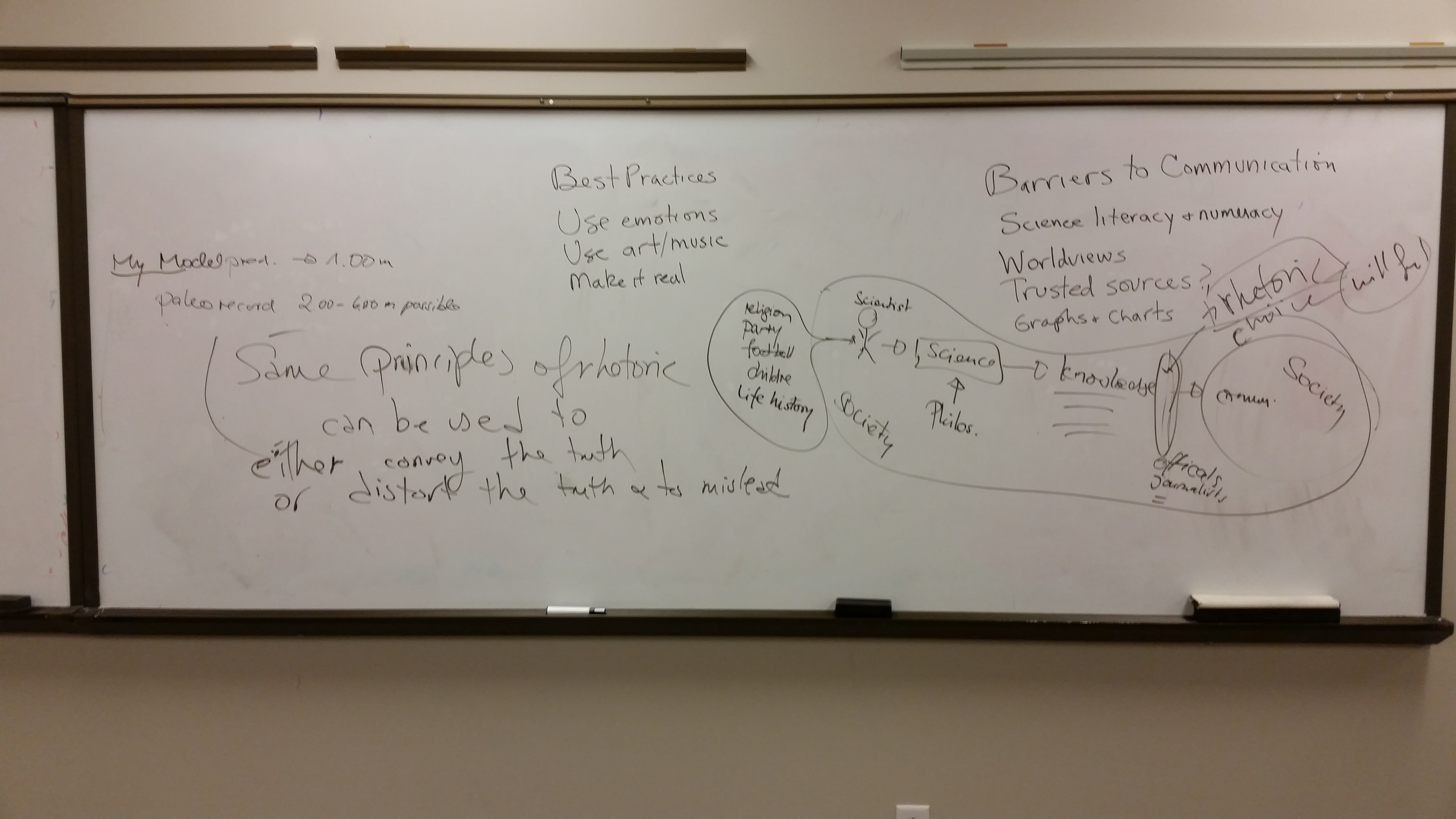Activities | Research | Academics | Information | Connecting | Resources | Public Events
Academics | Course Overview | Schedule | Reading List | Blogs and Communications
Science in Literature: Reflections on the Social Constructs of Science in Society
Course: OEAS/ENMA 795/895 Advanced/Special Topics (three credits);
Course title: Science in literature: reflections on the social constructs of science in society;
Instructors: Dr. Hans-Peter Plag, Dr. Michelle Covi, Michelle Heart;
Term: Fall 2014.
Notes Week 6: Framing of science within the public realm; science/environmental journalism, editorial/blog
Discussion topic for week 7: To what extent does the personal life history of authors impact the future scenarios, projections, and warnings they might produce based on their scientific work? Specifically are there indications that the works of Ehrlich and Ehrlich and Diamond can be linked to their life history?
Michelle Covi presented the following slides:
Framing Science
Science Communication
- Types
- How does the public view science?
- What are the barriers and how do we overcome them?
Climate Change Communication
- Unique? Challenges
- Best Practices/Advice for Communicators
|
Science Communication
Scholarly Communication
Science Education
Science Journalism
Risk Communication
Science-based Entertainment
Social Learning/Public Participation
|
American Attitudes toward science
- 7 out of 10 Americans see scientific research as more positive than negative for society (NSF)
- Americans with more education, income and scientific knowledge held a stronger belief in the benefits of science (NSF)
- Americans also had confidence and trust in scientists- only exceeded by the military (NSF)
- American were near average in comparison to other counties in their belief that science can solve environmental problems (~20% agree, ~50% disagree)
|
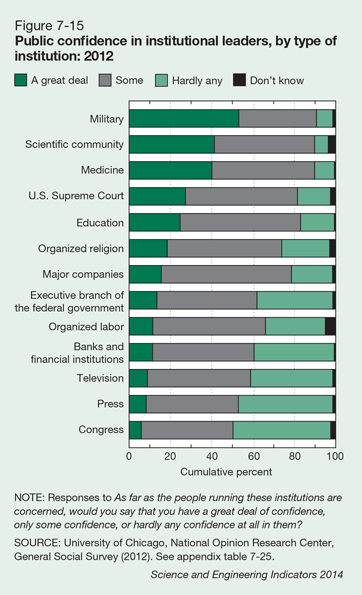
|
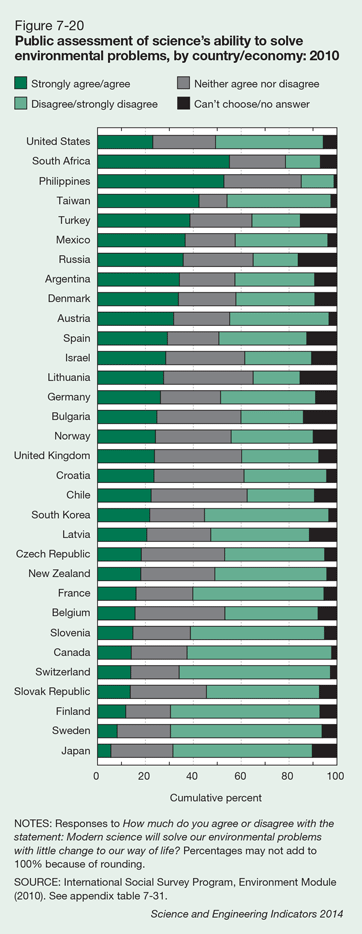
|
Barriers to Communication
Science Literacy and Numeracy?
|
Adult Science Understanding
- American correctly answered 5.8 out of 9 science questions (National Science Foundation)
- Levels of factual knowledge in the United States are comparable to those in Europe and are generally higher than levels in countries in other parts of the world. (NSF)
- Survey of numeracy in adults, across all countries in a study, 8.1%-31.7% are proficient only at the lowest level of numeracy- US is 28% (OCED)
|
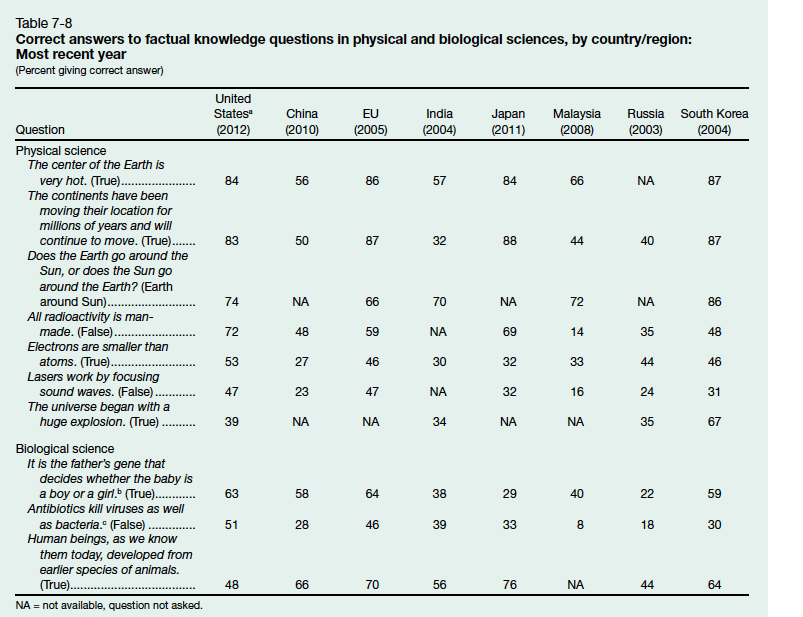
|
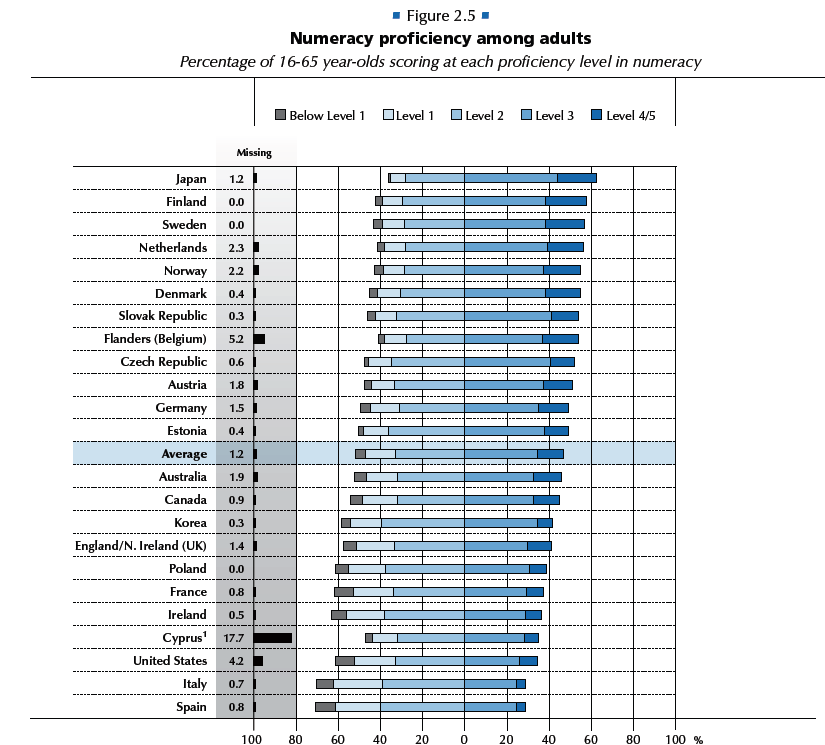
|
Barriers to Communication
Discerning good sources of Information
Evaluating an unfamiliar risk
|
Science Communication- Where
- More people are using the internet for science information, but most of the information sources were on-line newspapers (33% got science from newspapers) (NSF)
- When asked where they would go to seek information 63% said the internet (NSF)
- 80% of people that have gotten science information on line have also used the internet to fact check, but also use other sources (Pew)
|
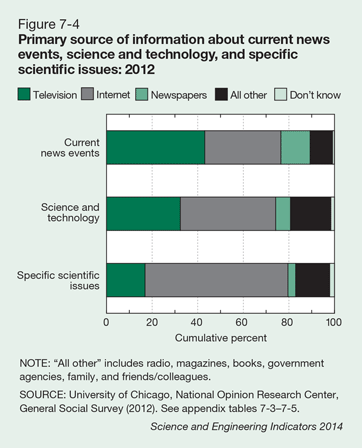
|
Internet Sites Used (PEW, 2006)
When asked whether they had ever gone to websites where the content is predominantly about science, half (49%) of internet users said they had been to at least one of the following sites.
- 23% of internet users have been to NationalGeographic.com.
- 23% have been to USGS.gov, the main website of the U.S. Geological Survey, which is the main U.S. government site for Earth-science information.
- 19% have been to NASA.gov.
- 14% have been to the Smithsonian Institution website.
- 10% have been to Science.com.
- 9% have been to Nature.com.
|
Risk Perception
Risk= Hazard + Outrage
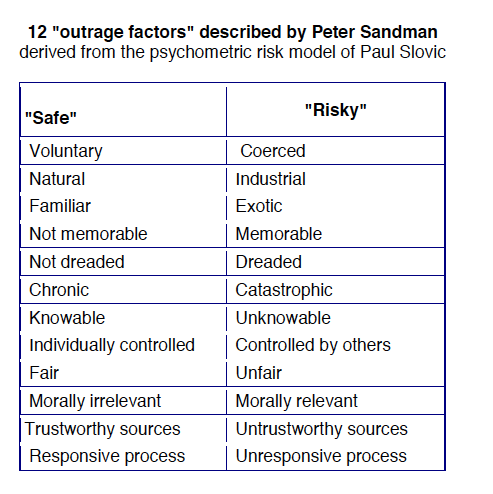
|
Barriers
Beliefs. Identity or worldview conflict with accepted science-based truths or message
- Evolution
- Vaccines
- Climate change
|
References
- National Science Board. 2014. Science and Engineering Indicators 2014. Arlington VA: National Science Foundation (NSB 14-01).
- OECD (2013), OECD Skills Outlook 2013: First Results from the Survey of Adult Skills, OECD Publishing.
http://dx.doi.org/10.1787/9789264204256-en
- Pew Internet and Life Project, 2006, The Internet as a Resource
for News and Information about Science. http://www.pewinternet.org/2006/11/20/the-internet-as-a-resource-for-news-and-information-about-science/
|
WebSites
- http://environment.yale.edu/climate-communication/
- http://www.climatechangecommunication.org/
- http://www.culturalcognition.net/
- http://climaterealityproject.org/press
- http://www.skepticalscience.com/
|
|
To see the picture in higher resolution, just click on the picture.


